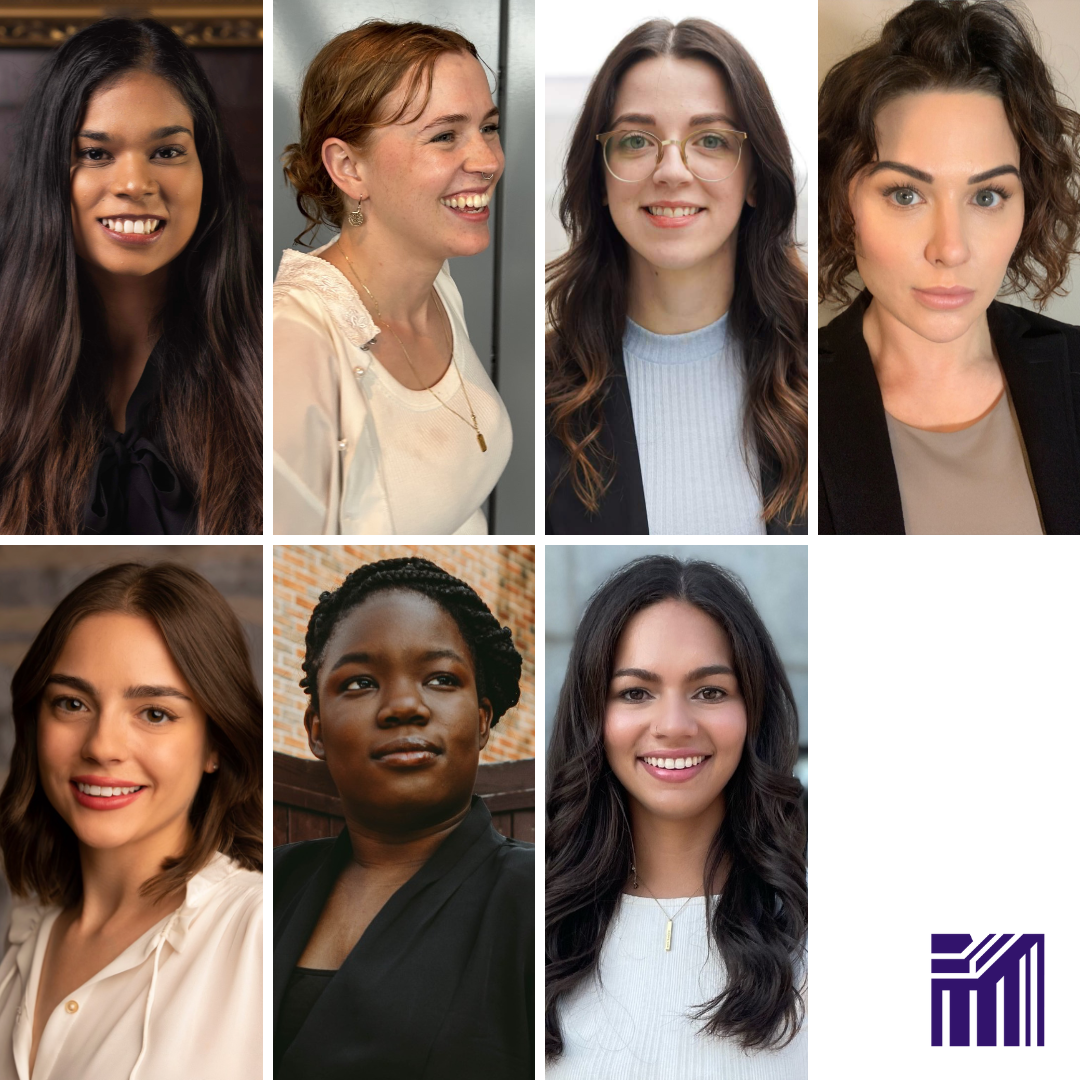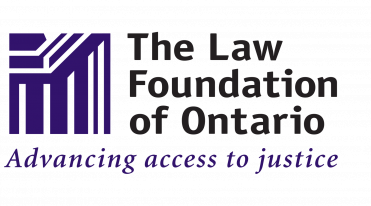The Law Foundation of Ontario created the Public Interest Articling Fellowship to help respond to the public’s need for legal assistance and to help give law students valuable experience in public interest law. The Foundation makes a substantial contribution to public interest law in Ontario through this program as many organizations simply do not have enough funding to host articling students. Meet our current Public Interest Articling Fellowship participants:
2023-2024
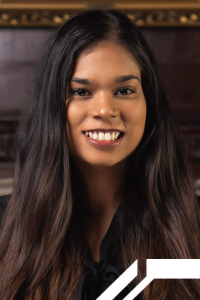 Kassandra Neranjan
Kassandra Neranjan
Law school: McGill University
PIAF placement: Amnesty International
Kassandra Neranjan (she/her) is a gender justice advocate, researcher, and student-at-law. She is a graduate of McGill University Faculty of Law’s Bachelor of Civil Law/Juris Doctor program. Here she was Co-Editor-in-Chief of Inter Gentes: Journal of International Law & Legal Pluralism and Co-President of the Women of Colour Collective. She completed internships with the Canadian Civil Liberties Association, Canadian Permanent Mission to the United Nations in New York, and Law and Society Trust (a minority rights organization in Sri Lanka). Kassandra holds an Honours Bachelor of Arts from the University of Toronto in International Relations, Peace, Conflict & Justice Studies, and French Studies.
Kassandra’s first love has always been research. She has led and consulted on research projects for academics and NGOs analyzing gender justice and its intersection with interdisciplinary subjects. These include the Rohingya refugee crisis, humanitarian aid provision, security studies, climate change, housing security, ethnic minority rights, and feminist economics.
Kassandra is inspired to weave together intersectional feminist approaches to international human rights and humanitarian law with social science research to better advocate for gender justice claims. She is passionate about amplifying underrepresented narratives on the global stage and advancing law reform to better support minority communities around the world.
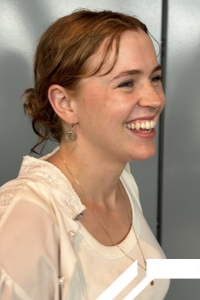 Emma Partridge
Emma Partridge
Law school: Osgoode Hall Law School
PIAF placement: Barbra Schlifer Commemorative Clinic
Emma Partridge (she/her) graduated from Osgoode Hall Law School with an interest in social justice advocacy. Having worked for the Canadian Women’s Foundation before law school, she was drawn to Osgoode for its partnership with the Barbra Schlifer Commemorative Clinic, a one-of-a-kind legal clinic that serves survivors of gender-based violence through trauma-informed practice.
During her three years at Osgoode, Emma completed placements with the Schlifer Clinic and Parkdale Community Legal Services and returned to the Schlifer Clinic for articling to continue deepening her passion for feminist legal practice. She hopes to continue with public interest law for the entirety of her legal career as this is where she feels most excited about the capacity for law to be a social good. She is inspired by the work of lawyers in her community who are facilitating progressive change both through legal mechanisms and extra-legal solutions, such as advocacy and protest.
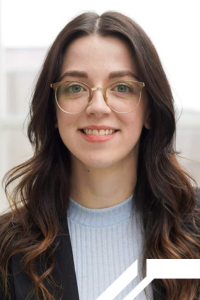 Sarah Gordon
Sarah Gordon
Law school: Dalhousie University
PIAF placement: Canadian Centre for Housing Rights (formerly Centre for Equality Rights in Accommodation)
Sarah Gordon (she/her) received her Juris Doctor from Dalhousie University’s Schulich School of Law. She also holds a Bachelor of Agriculture from Dalhousie University and a Bachelor of Business Administration from CAH Vilentum University of Applied Sciences in the Netherlands.
During law school, Sarah discovered her passion for public interest while working as a student advocate at Dalhousie’s Student Union. She had her first opportunity to work with the Canadian Centre for Housing Rights as a summer intern and learned that she enjoyed working in the area of housing law. Her final year of law school included a clinical law placement at Dalhousie Legal Aid Service, working with tenants in Nova Scotia.
Sarah is excited to continue as an advocate in housing law and public interest law through the Public Interest Articling Fellowship. With a growing proportion of Canada’s population renting their homes, housing law is an area of law that has broad reach and impact.
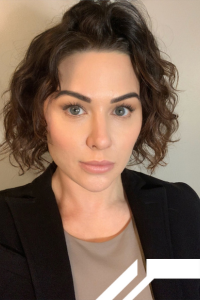 Chantal Larocque
Chantal Larocque
Law school: University of Alberta
PIAF placement: Innocence Canada
Chantal Larocque (she/her) recently obtained her Juris Doctor at the University of Alberta. Prior to law school, Chantal studied political science and women and gender studies at the University of Alberta, where she graduated with distinction.
The study of different types of oppression and imbalance of power in society during her undergraduate studies spurred her interest in seeking a career in criminal law to help individuals when they face the power of the state. Chantal is thrilled to join the team at Innocence Canada, a national nonprofit organization that advocates for individuals who have been wrongfully convicted of a crime and promotes the prevention of wrongful convictions through legal education and reform.
As a French Canadian, Chantal is also passionate about promoting linguistic rights and access to justice in both official languages. During law school, she was an elected member of the Board of Directors of the Association des juristes d’expression française de l’Alberta, where she helped ensure the protection of the public’s linguistic rights. She also worked at the Alberta Court of King’s Bench as a bilingual law student, where she assisted lawyers and judges with French related matters, and she also helped with the translation of legislative texts.
 Megan Linaric
Megan Linaric
Law school: Queen’s University
PIAF placement: John Howard Society of Canada
Megan Linaric received her bachelor’s degree in psychology and philosophy from the University of Western Ontario, where her interest in criminal justice was sparked. She received her Juris Doctor degree from Queen’s University, and was committed to being an active member of the community. She worked as a caseworker for the Queen’s Prison Law Clinic, a teaching assistant for an international law course, and was a moot oralist for the Philip C. Jessup International Law Moot. Megan also volunteered for Pro Bono Students Canada and as an editor for Queen’s Law Journal and Canadian Guide to Legal Style.
Megan is now pursuing her passion for criminal justice and correctional reform through her fellowship with the John Howard Society of Canada. Of particular interest to her is enhancing rehabilitation to reduce recidivism and addressing the relationships between mental health and the justice system.
In her spare time, Megan enjoys painting, reading, and travelling. Having spent a few years as a barista, she is also a self-proclaimed coffee connoisseur.
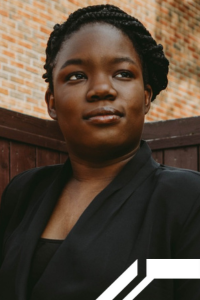 Abigail Anderson
Abigail Anderson
Law school: University of Windsor
PIAF placement: Peacebuilders Canada
Abigail Anderson wanted to be a pediatrician since the age of 5. That changed in grade 12 when she took her first law class and immediately became enamored with law’s nuances. Abigail began studying at Windsor Law amid the height of the pandemic in 2020, and she was part of the first class to complete its entire first year of law school remotely. During law school, she had the honour of serving on the executive boards of the Black Law Students’ Association (BLSA) Windsor Chapter and BLSA Canada. Abigail concurrently received her Bachelor of Arts (Honours) in Criminology and certificate in American Sign Language from Carleton University.
Before law school, Abigail worked in the social work field, working with marginalized communities and witnessing their barriers to access to justice. While she no longer wants to be a pediatrician, she still wants to work with young people as a youth justice lawyer to facilitate equity over equality regarding youth barriers in the criminal justice system.
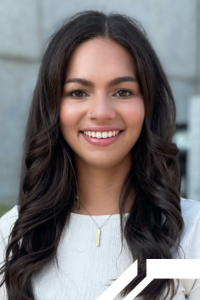 Myka Kollmann
Myka Kollmann
Law school: University of Ottawa, Common Law
PIAF placement: Public Interest Advocacy Centre
Myka Kollmann completed a Bachelor of Arts at The University of British Columbia in gender and environmental studies and graduated with her Juris Doctor from the University of Ottawa. Her interests include exploring the intersection of international human rights and the regulation of emerging technologies.
During law school, she interned at the Senate of Canada working on accessibility-based analysis of internet services and co-authored a book chapter on pandemic-fighting technologies. As a strong advocate for human rights, Myka volunteered at the Human Rights Research Education Center and took part in Model UN. Myka is passionate about the law and believes it is an effective tool to inspire and create meaningful change. Outside of work, Myka enjoys playing softball, chess, and pickling foods.
PIAF placement: Women’s Legal Education and Action Fund (LEAF)
The Women’s Legal Education and Action Fund is also hosting an articling student.

